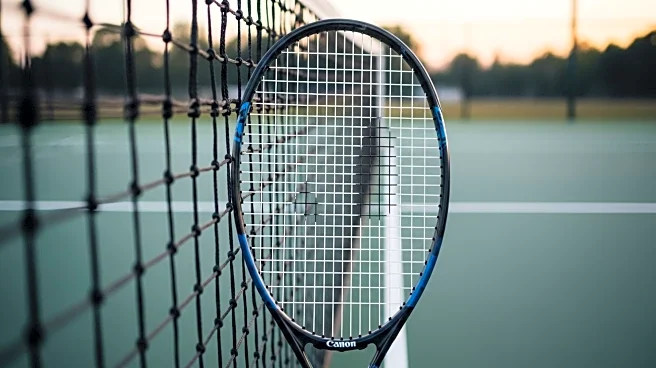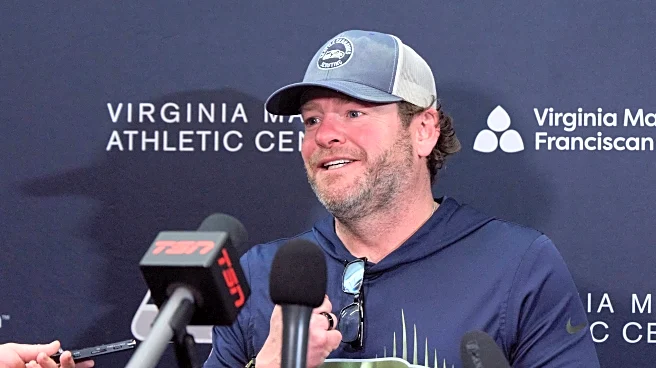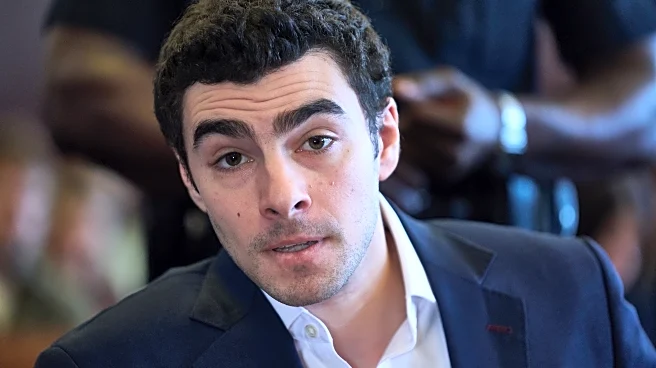What's Happening?
Denis Shapovalov faced criticism following his defeat to Jannik Sinner in the third round of the US Open. Despite showing promise, Shapovalov's performance was marred by repeated mistakes, particularly his tendency to express frustration towards his box with sarcastic gestures. Former professionals, including Tim Henman and Ryan Harrison, highlighted Shapovalov's inconsistency, noting that while he has the potential to play brilliant tennis, his emotional reactions often undermine his performance. Shapovalov, who has slipped to world number 29, has won two ATP titles in 2025, but his career has been marked by similar frustrations in high-pressure matches.
Why It's Important?
Shapovalov's defeat and the accompanying criticism underscore the challenges faced by athletes in maintaining composure under pressure. His repeated mistakes highlight the psychological aspect of competitive sports, where mental resilience can be as crucial as physical skill. For Shapovalov, addressing these issues is vital for his future success and consistency on the court. The broader significance lies in the impact of mental fortitude on athletic performance, which can influence rankings, sponsorships, and career longevity. Shapovalov's situation serves as a reminder of the importance of mental training alongside physical preparation in professional sports.
What's Next?
Shapovalov will need to focus on improving his mental game to avoid similar pitfalls in future tournaments. This may involve working with sports psychologists or coaches to develop strategies for managing frustration and maintaining focus during matches. As he continues to compete, his ability to learn from past mistakes will be crucial in regaining his position among the top players. The upcoming matches will test his resilience and adaptability, with potential changes in his approach likely to be observed by fans and analysts.
Beyond the Headlines
The criticism of Shapovalov's behavior highlights the cultural expectations of sportsmanship and professionalism in tennis. His actions on the court reflect broader issues of emotional regulation and the pressures faced by athletes in high-stakes environments. This situation may prompt discussions on the support systems available to athletes for managing stress and maintaining mental health. Additionally, it raises questions about the role of coaching in addressing behavioral issues and fostering a positive competitive mindset.









